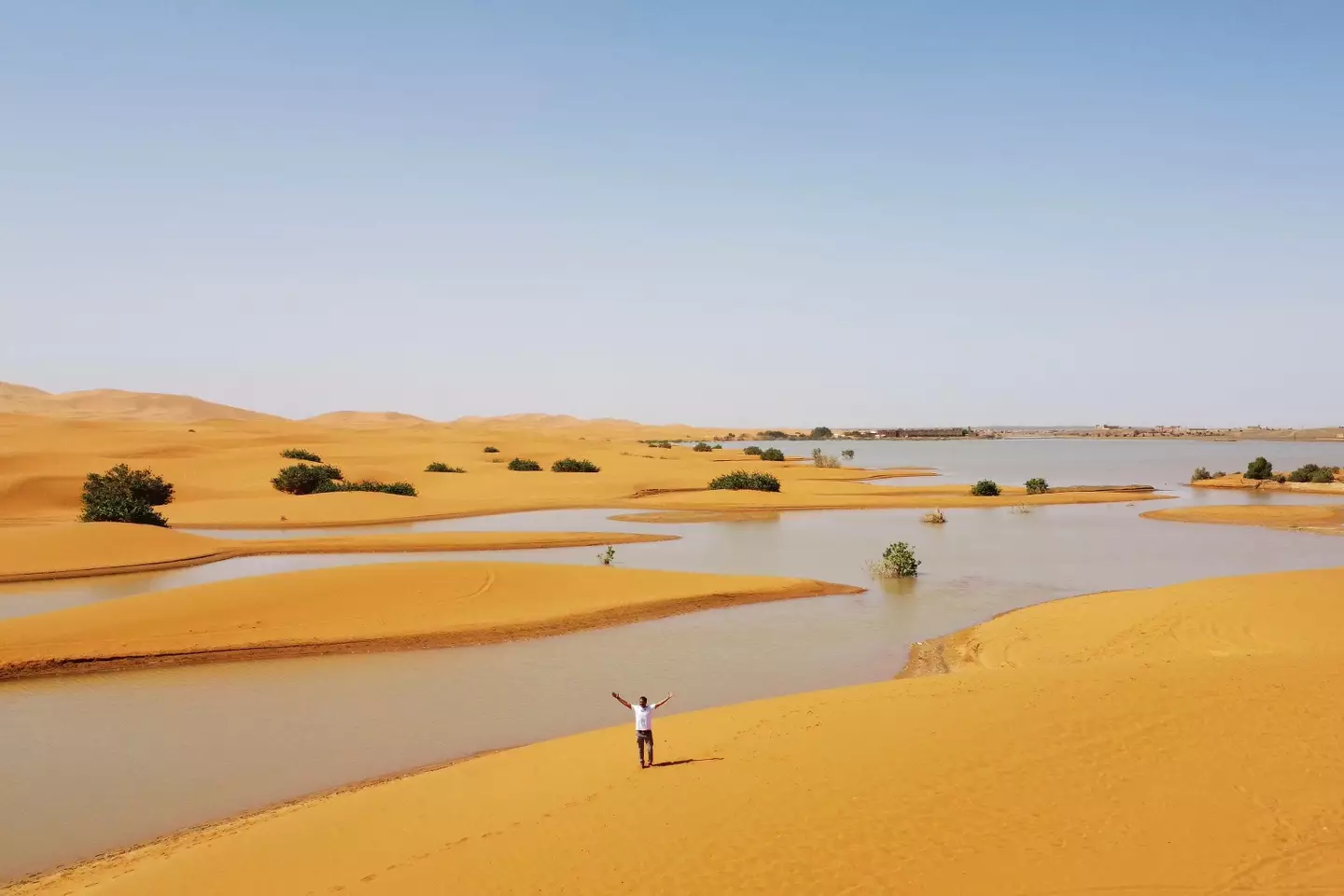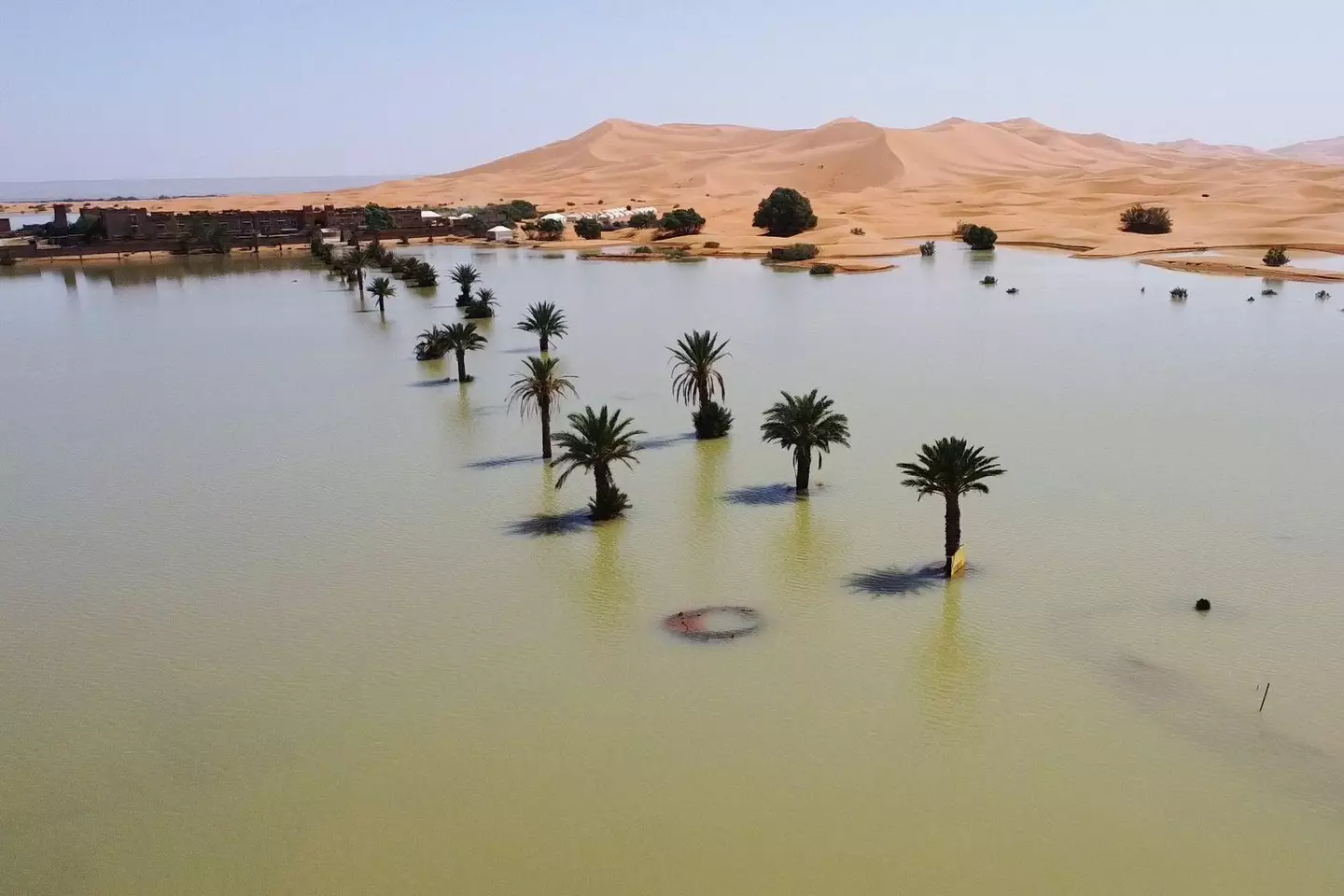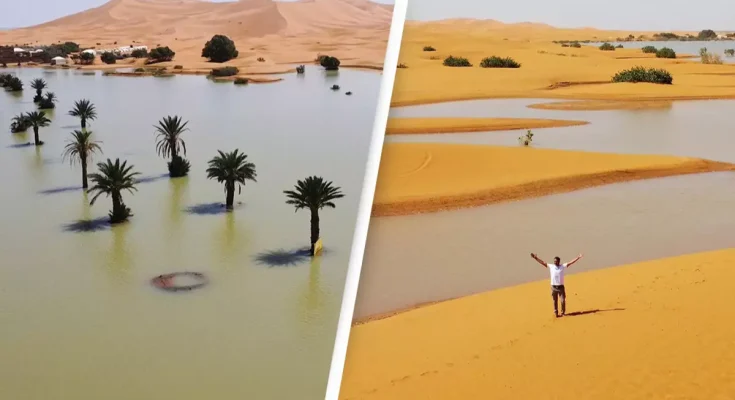Rare rainfall has left parts of the Sahara in Rabat, Morocco with more water than they have seen in decades
It might be one of the driest places in the world, but new images show parts of the Sahara Desert have been flooded by recent rainfall.
The rains have caused the Sahara to receive more water than it has seen in decades.
Parts of the desert in southeast Morocco have seen pools of water filling up between the palm trees.
According to figures released by the Moroccan government, rain fell over the course of two days in September and exceeded the annual averages in a number of areas.
Typically these see less than 250 millimeters, or 10 inches, of rain in the whole year.
One of the areas which was most hit was Tagounite, a village which is located around 280 miles south of the capital Rabat.
Tagounite saw over 100 millimeters (around 3.9 inches) of rain, more than a third of the annual average, over the course of just 24 hours.

Houssine Youabeb from the General Directorate of Meteorology in Morocco told AP: “It’s been 30 to 50 years since we’ve had this much rain in such a short space of time.”
Footage from NASA satellites shows water flowing into the bed of Lake Iriqui, which is a lake bed located between Tata and Zagora which has been dry for 50 years.
Images show four by fours making their way between the newly formed pools of water in the desert.
While it is a highly unusual weather event, the rain will help to refill groundwater aquifers, an underground layer of material that can contain water.
These are used to maintain a supply of water to communities living in the desert.

Dammed reservoirs in the region were also refilled by the rainfall, though it’s not clear if this will be enough to stave off a potential drought.
Over 20 people were confirmed to have died in Morocco and Algeria as water flooded through the sands after the rain storms.
In Morocco, officials confirmed that 18 people died in rural areas, while 56 homes were destroyed in the floods.
There was also damage to infrastructure including drinking water, roads, and electricity.
Harvests were affected by the rainfall, and as a result the Moroccan government has allocated emergency relief funds.
The floods have come in the wake of an earthquake last year which left nearly 3,000 people dead.
Destruction hit communities in the High Atlas mountains in central Morocco.



